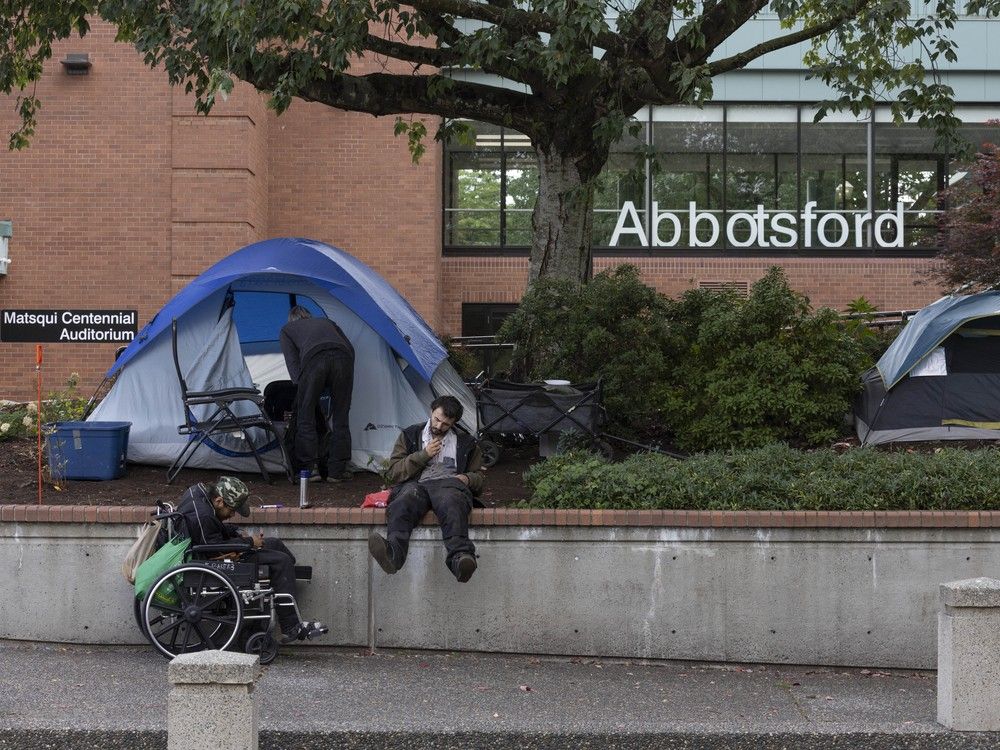Opinion: It is understandable that parents think a cellphone will make their kid safer but it's a very real Pandora’s box of sexual predators, cyberbullying, behaviour modification and other online landmines for kids
Published Sep 09, 2024 • Last updated 0 minutes ago • 3 minute read

Last week in B.C., kids went back to school facing new province-wide restrictions on cellphones in schools. The change is welcome. But what also needs addressing is the apparent social consensus that kids need cellphones in the first place.
My wife and I, along with other like-minded parents in Vancouver, have raised our kids phone-free. Neither my 17-year-old daughter nor my nearly 13-year-old son have ever had a cellphone, and they don’t want one.
Advertisement 2
THIS CONTENT IS RESERVED FOR SUBSCRIBERS ONLY
Subscribe now to read the latest news in your city and across Canada.
- Unlimited online access to articles from across Canada with one account.
- Get exclusive access to the Vancouver Sun ePaper, an electronic replica of the print edition that you can share, download and comment on.
- Enjoy insights and behind-the-scenes analysis from our award-winning journalists.
- Support local journalists and the next generation of journalists.
- Daily puzzles including the New York Times Crossword.
SUBSCRIBE TO UNLOCK MORE ARTICLES
Subscribe now to read the latest news in your city and across Canada.
- Unlimited online access to articles from across Canada with one account.
- Get exclusive access to the Vancouver Sun ePaper, an electronic replica of the print edition that you can share, download and comment on.
- Enjoy insights and behind-the-scenes analysis from our award-winning journalists.
- Support local journalists and the next generation of journalists.
- Daily puzzles including the New York Times Crossword.
REGISTER / SIGN IN TO UNLOCK MORE ARTICLES
Create an account or sign in to continue with your reading experience.
- Access articles from across Canada with one account.
- Share your thoughts and join the conversation in the comments.
- Enjoy additional articles per month.
- Get email updates from your favourite authors.
Sign In or Create an Account
or
Article content
We rejected the common rationale that reachability is all-important. Much of the time kids are looked after in school, where — it is now officially recognized — cellphones have been wreaking havoc on students’ mental well-being and learning.
We also felt no real need for constant connectivity with our kids outside of school hours. The kids and their phone-free friends were given age-appropriate geographic boundaries beyond which they were not permitted to go. The range expanded over time. Hunger, thirst, a bathroom break or a skinned knee was dealt with by simply walking (or limping) home. Normally, a cellphone isn’t really needed — either the potential mishaps are trivial and the kid can (or can learn to) deal with them, or they are serious enough that someone else can make a call, including 911 if necessary.
It is understandable that parents think a cellphone will make their kid safer. But the vast majority of violent or sexual crimes against kids are committed by somebody known to them that they already trust, not random strangers. Violent stranger crime against kids is exceedingly rare in Canada. We decided that teaching our kids to be attentive and alert to their surroundings, including vehicles and suspicious or questionable human behaviours, made them as safe or safer than giving them a cellphone. A cellphone is not a good surrogate for navigating suspicious or odd adult behaviour.
By signing up you consent to receive the above newsletter from Postmedia Network Inc.
Article content
Advertisement 3
Article content
In fact, while stranger-danger “out there” is mostly a fabrication, a cellphone is a very real Pandora’s box of sexual predators, cyberbullying, identity theft, malware, behaviour modification, and other online landmines for kids. Cellphones give “bad actors” easier access to kids than they otherwise would have.
The idea that kids with cellphones are more “independent” is especially peculiar. For the question is, independent of what? Not the parents, certainly. Endless internet headlines such as “Best Apps for managing your child’s cellphone use” and monitoring apps such as “mSpy” and “Net Nanny” belie that claim. Whatever benefit parental surveillance may bring, it cannot be kids’ independence from their own parents, virtually by definition. Moreover, the idea of independence via cellphone becomes borderline Orwellian when you consider how cellphones introduce early-age umbilical dependence upon the technology itself, and the profit-driven forces operating through it. The displacement of kids’ own wits, know-how, resources, and creativity by an electronic parental leash and corporate-sponsored apps makes them more, not less, dependent on forces outside themselves.
Advertisement 4
Article content
Home and family life are more enjoyable without cellphones. The sanctity of meal times and family togetherness are not in competition with the almighty screen. Without a phone to fill the void with instant, fidgety, dopaminergic gratification, phone-free kids learn to deal with boredom by discovering their own intrinsic creative energy. No phone, no chance of phone addiction, period.
Going phone-free also teaches prima facie trust in other people, a vital public good. My daughter began riding the city bus alone in Vancouver at age 11, without a cellphone. After explaining all of the possible scenarios she might encounter, I told her: “If you get lost, the bus driver will help you. And if someone on the bus is hassling you or seems just a little too friendly, go stand next to a mother with kids or someone who looks like a granny.”
Parenting involves risk. There are no guarantees for kids with cellphones, or without. But the risks of going without are very low, and the rewards are very high. We took our chances with the phone-free alternative and we’re glad we did. I encourage parents to band together with other like-minded parents and go for it, too.
Paul Keeling is a writer based in Vancouver. He has authored articles for Sierra, Orion, Earth Island Journal, Philosophy Now, Globe and Mail and The Tyee, and the academic journals Environmental Values, Environmental Ethics, Wilderness, and International Journal of Wilderness.
Article content
.png)
 1 week ago
12
1 week ago
12

































 Bengali (BD) ·
Bengali (BD) ·  English (US) ·
English (US) ·